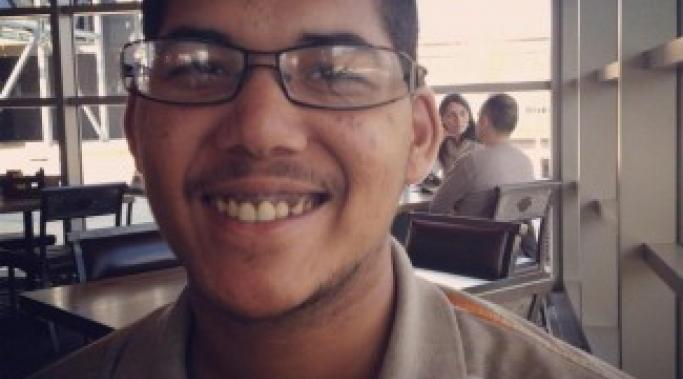We need to discuss mental illness and suicide with college students as every college student needs to be educated about these things. In a society where we educate our teenagers on birth control, alcohol and drug abuse, along with religious, racial, and gender preference awareness, we are failing to educate our college-bound teenagers on mental health issues. For their own wellbeing, we must educate every college student on mental illness and suicide.
Mental Illness and Stigma
If you belong to a family with mental illness, you need a support group. Between the genetic factors of mental illness and their coexisting conditions and effects (addiction, codependency, criminal activity, divorce, abuse, and more), families with mental illness need a place to sort it all out with people who share their experiences. Different from one-on-one therapy or chatting with a friend, you can find strength, validation, and belonging in a support group for families with mental illness.
Mothering with an invisible mental illness is challenging. I know you couldn’t see my mental illness when you were sitting next to me at “back to school” night. You couldn't see the bipolar medications I swallow twice a day or the 14 years of therapy that have equipped me to behave so normally. You can’t see my bipolar 1 disorder, but sometimes I wish you could. I'm mothering with an invisible mental illness.
Tim has announced that when he turns 21 next summer he wants to move out. I can’t begin to explain all the ways that frightens me. Except for this past February when he knew he needed a few days inpatient, Tim has been stable for just over a year. I never, ever thought we would get to this place. He even spent two straight weeks alone with my parents in July, helping them with chores around the house and playing miniature golf. He hasn’t been able to do that since he was nine. Moving out means Tim will have to be responsible for all the things he doesn't realize he relies on us for, and for all the things he is responsible for now, but I remind him about almost daily. We can teach him these things, yes. But what we can’t teach him scares me more, namely, how to keep him safe out in a world that may automatically assume he’s dangerous, and may be dangerous to him because he trusts too much.
I enjoy reading blogs written by other parents. It’s great that the Internet has given us a virtual park bench on which to sit and share ideas, tips, frustrations, and joys. I read all kinds of parenting blogs (I dislike the term, “mommy blogger”), not just those about raising special needs kids. I say this as preface to what has historically been a statement that has elicited blow back. Here it comes:
I cringe when a parent blogger contributes to mental illness stigma with their blog title.
Sometimes, the only way I get a sense of what my son, Ben, goes through as he hears voices and tries to process them is through his poetry and prose:
I feel like everybody is piecing together this huge puzzle and I was born with it already solved. I guess that’s a post-life thing. But with me it’s always been about diving deeper. Delving and diving in gray water depths instead of trying to pull that water up to your level where its shade is altered. Its as a different sun shine in your in your world a mirror of a sort that you struggle to see for in refusing to see yourself in disacceptance you are condemned to see it everywhere you go on everyone else’s face….wow I am really showing myself now the strange level these “normal” people live on….hard it be to shatter these dreams of them so solidified by causality taken as righteousness. And the illusion of consciousness. - Ben, 2002
But today I got a different perspective, thanks to my guest blogger, Katherine Walters, who, like Ben, has schizophrenia - but with more insight into it.
In our neighboring Newtown, Connecticut, too many families are steeling themselves for the anniversary of an unspeakable tragedy: the shooting at Sandy Hook Elementary School on December 14, 2012.
I've recently been interviewed for an article (coming out soon) about whether I think the Mental Health system in Connecticut has changed in the year since the incident. My answer? Not yet, not that I can see. If anything, we're in danger of sweeping the issues under the rug once again.
But the questions remain: Could it have been prevented? Should someone have seen the "signs"? And - more usefully, perhaps - what can be done to help stop future tragedy?
Today, nearly two months since my last post about Amanda Bynes, she has finally been admitted for psychiatric evaluation. What took so long?
This much I have personally experienced: until someone you love is of “harm to self or others”, it’s next to impossible to get him or her placed for evaluation. Unfortunately, sometimes by then it is too late.
Yesterday, Amanda’s parents were finally able to apply for conservatorship – a decision that was delayed, as it looks like Amanda will stay under psychiatric care for at least two weeks. For this time, as I know all to well, her family will have a time to regroup a bit, breathe a sigh of relief that Amanda is safe for the moment, and gather strength for the fight that lies ahead.
"Are you taking your meds, sweetie?" asks Hannah's Dad, juggling the cell phone as he shops in the hardware store.
"Of course I'm taking my meds!"shouts Hannah, as she compulsively counts to 8 in every imaginable way (Hannah has OCD), hides from life under her comforter, and tries to cope with the pain she has inflicted upon herself with a Q-Tip. (Hard to explain. Gotta see the show.)
Of course, Hannah is clearly not taking her meds.
My son Ben, diagnosed with paranoid schizophrenia at age 20 after five years of confusing onset symptoms, has often seemed "frozen in time" in this phase of recovery; emotionally and cognitively stuck at the age he had been when the symptoms began during high school.
Despite three relapses during this near decade of stabilization (all due to instances of refusing meds), Ben has been in recovery most of those years and has progressed in many ways, as I wrote in an earlier post, Mental Illness Frozen in Time Can Thaw.
But, until recently, Ben had few friends and I wondered if he would ever get that particular joy back in his life, or when he might reach the stage of self-acceptance that is crucial to healthy friendships.
Would he ever again regain what he had before schizophrenia set in; the simple joy of having people with whom he could share a meal, see a movie, laugh and talk, or just hang out?









